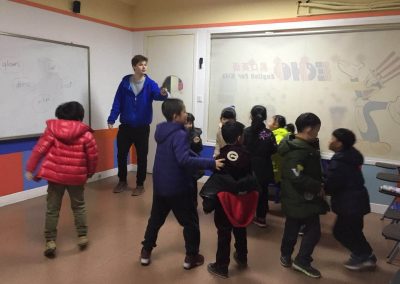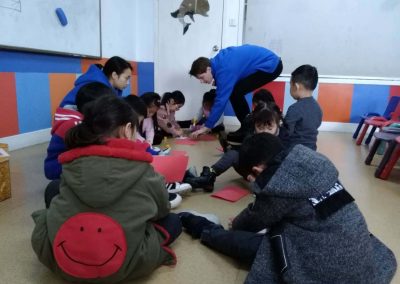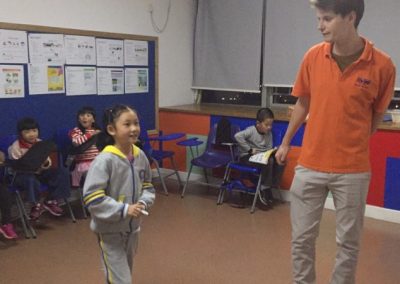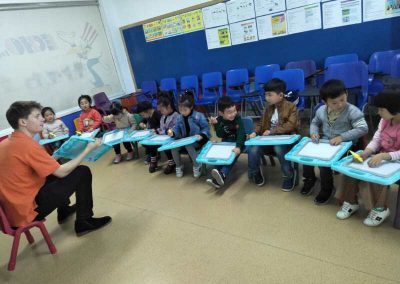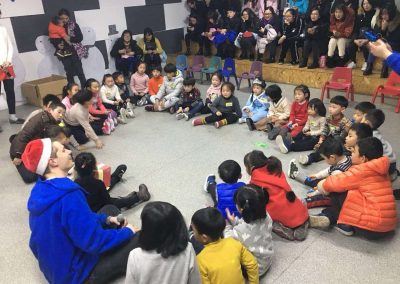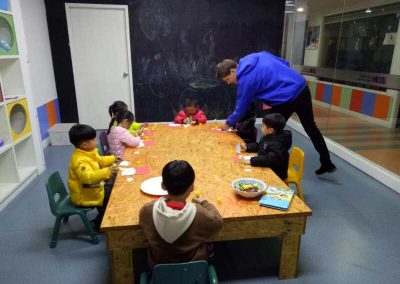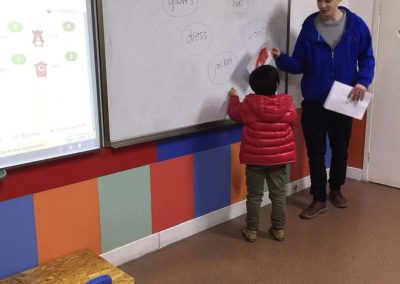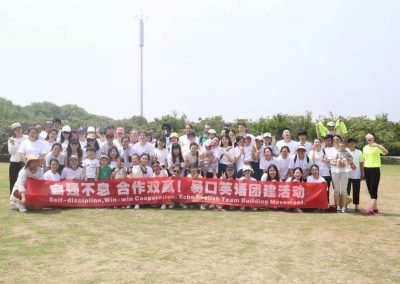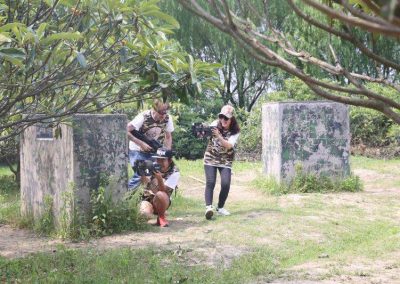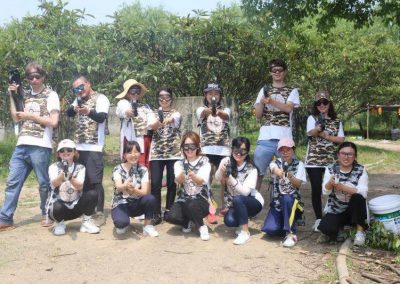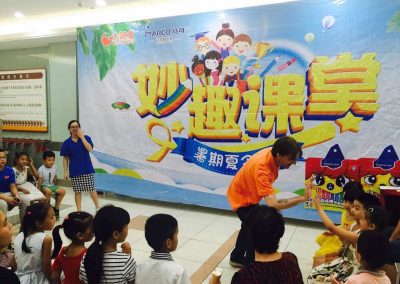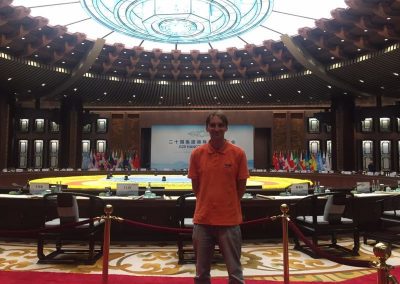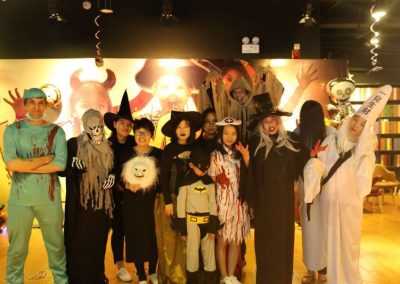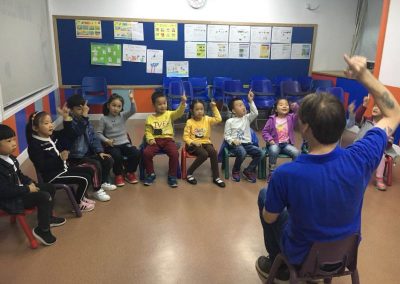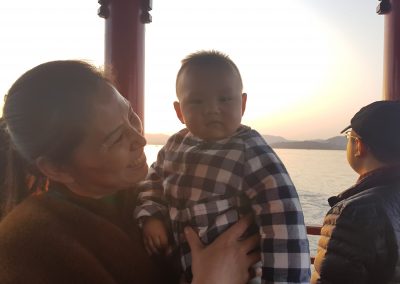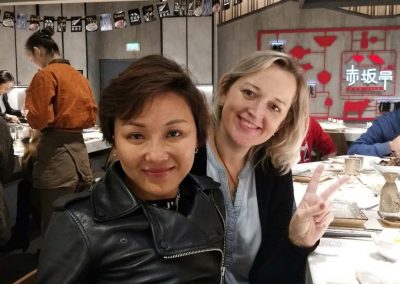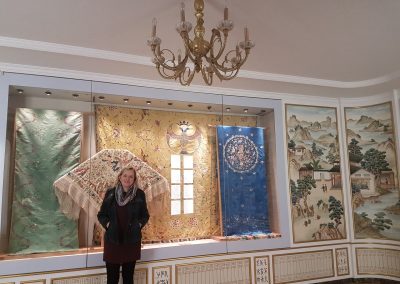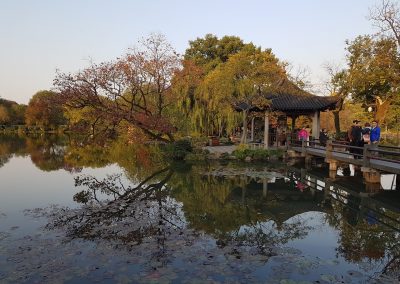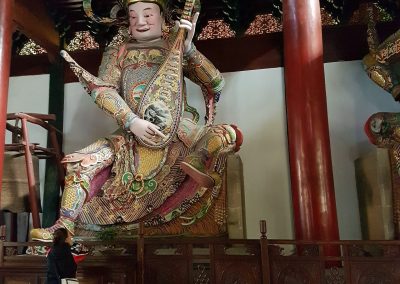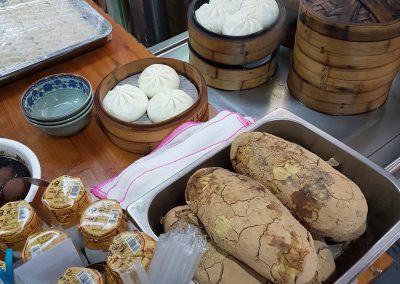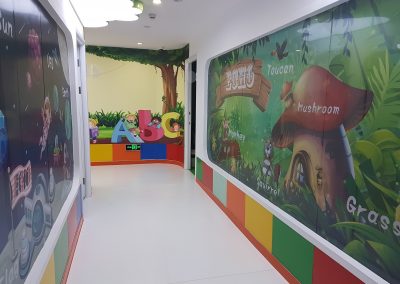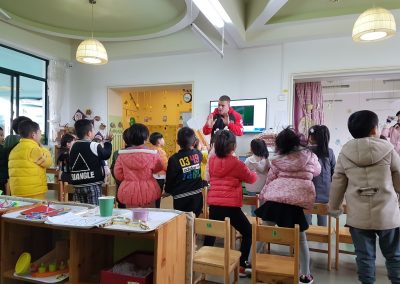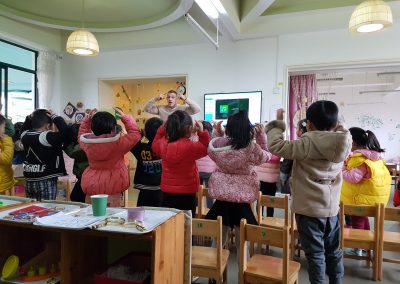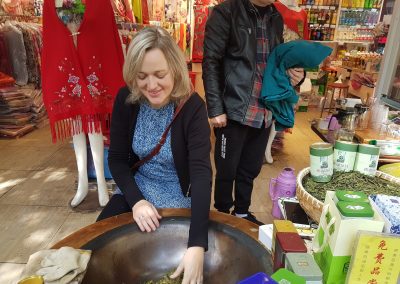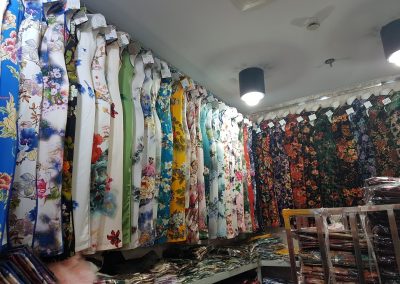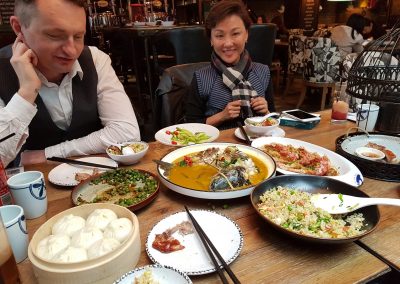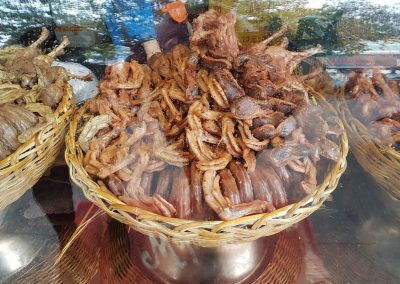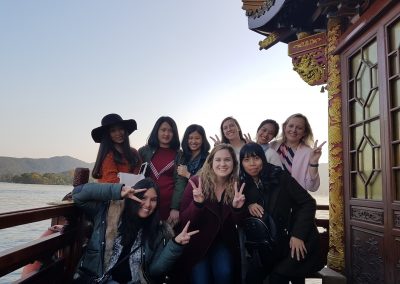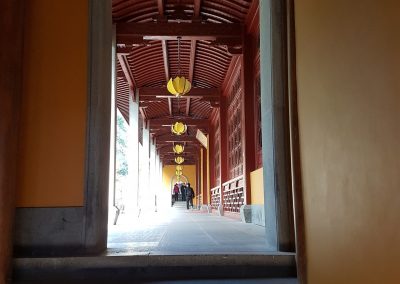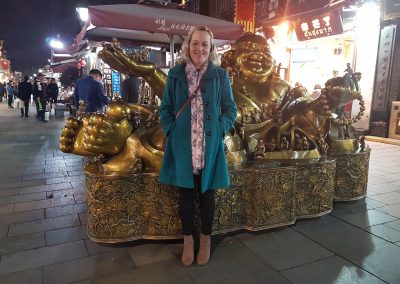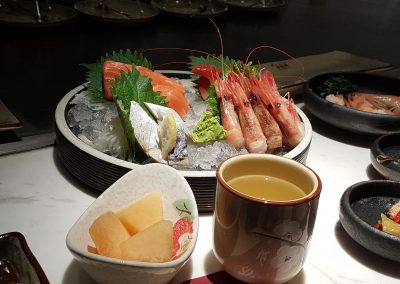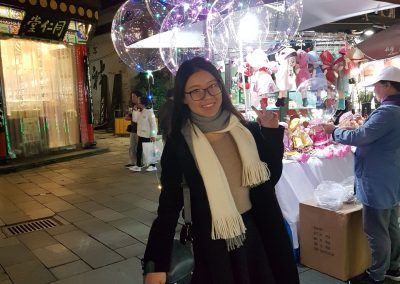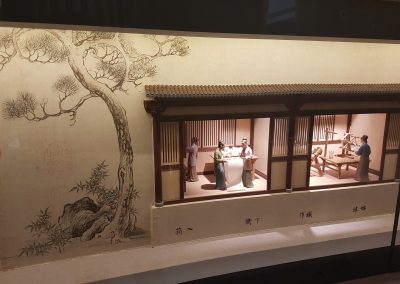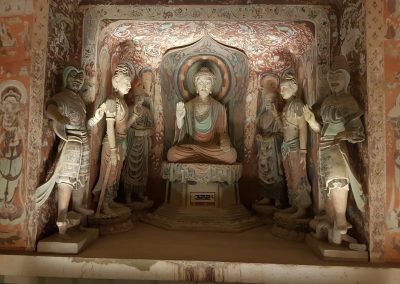Real Life Experiences

Jonathan is from the UK and has been a teacher in Hangzhou China for 3 years
How long did it take you to adapt to China?
I don’t know if anyone ever fully adapts. But getting over the initial culture shock and accepting certain conditions in the environment took me around 3 months
Is learning Chinese difficult?
Yes. However it depends how much time you invest in learning. I think basics such as numbers, directions and ordering food can be mastered in a few weeks. It makes life a lot easier
Had you ever taught before teaching in China?
No never. I was completely new to this. The TEFL was an important part in training me as a teacher and conditioning me as to what to expect. I think it took me a full 6 months to really adapt to the classroom environment and consider myself a bonafide teacher!
Do you miss your home country, friends and family?
Yes of course. But they are proud of me doing this and I’m proud of myself. The world is a big place. For me it’s important to grow and experience, I never regret stepping out of my comfort zone. I have no doubt one day I’ll return home into the my comfortable space. But not yet!
What things don’t you like about China?
Some of the food is challenging! but some of the food is wonderful.. it’s a little hit and miss at times. The crowds of people can be frustrating during rush hour and the general noise level day to day took me a while to accept. There are certain habits that older Chinese people do which wouldn’t really be accepted back home. Also the driving is atrocious!
What things do you love about China?
It’s incredibly safe and friendly. Also the international community here is great. It attracts lot of like minded people. There are some areas of outstanding natural beauty also which i never get tired of visiting. I also love the kids I teach. They are genuinely grateful and I feel I’m making a difference. China is also a great place to travel into Asia during the holidays. It’s easy to go backpacking around the Philippines or Cambodia .. and very very cheap. The days of package holidays to Alicante are well gone!
Can you offer one piece of advice to a potential new teacher?
Be confident and thick skinned. It’s ok to be nervous and even anxious but stand firm and hold your ground. I advice new teachers to perhaps learn a little Chinese before arrival and plan their first 2 months budget carefully
 Zara is Scottish and has been living in Suwon, in the Land of the Morning Calm (Korea!) since August 2017
Zara is Scottish and has been living in Suwon, in the Land of the Morning Calm (Korea!) since August 2017
How did you find the process of getting to your new country?
The process of moving to Korea was a long journey for me, as I first needed to leave my home in Northern Ireland and move in with my parents in Scotland. The journey itself was two flights, first an hour to Amsterdam then a 12-13 hour flight on Korean Air. While that flight was very long it was one of the most comfortable, I have ever experienced (and I travel a lot). I can also honestly say that the in-flight meal was actually really good (if you get the Korean option). Once I landed I was through customs and had my baggage within 15 minutes, then I was picked up by a driver at the airport with my name on a placard and taken straight to my academy. All in all a lengthy but painless journey!
What was it like when you first arrived? What were your first impressions?
When I first arrived, I was amazed as the landscape and appearance of Korea is vastly different from what I was used to in the UK. It is incredibly stunning! When I met the staff and Korean teachers in my academy, they were all incredibly friendly, warm and funny. I was taken great care of from everything ranging from questions, to meals, to house essentials.
What is teaching like? What age are your students? How many per class? Do you have a teaching assistant in your class? Do you supplement the curriculum with your own materials? What are the other staffs like?
My academy is small but rapidly growing, and I am the only native teacher. The work can be hard, and there is a lot of it, but it is incredibly rewarding and I love it. Everyone here works hard, but they are paid well for it. In addition, my boss tries very hard to ensure all of his staff – including me – are happy and healthy.
We have both junior and main school students, so the ages can range between 8-12 in the junior, and 12-17 in the main. Most classes have between 5-10 students. I initially worked from a set of textbooks, however since I joined my academy I have been asked to write my own and make my own other materials, which can be time consuming but it feels great. I do not have, or need, a teaching assistant, however if there are ever any issues (which never arise) the teachers around me can speak English and will help. The staff are amazing and I have made many great friends here. I cannot speak highly enough of them.
What is your accommodation like?
I live alone in an apartment about 10 minutes’ walk from my academy. It consists of a small kitchen (with an oven, hob and refrigerator/freezer), a bedroom/living room, a bathroom, and a small utility room for my laundry machine. I love my apartment, it is extremely comfortable.
Location – what is your city like? What do you do during your time off?
I am based in Suwon, which on the bus is about an hour from Seoul. I love Suwon; my district is Yeongtong which is filled with bars, restaurants and stores, so there’s plenty to do. While my apartment is within 5 minutes walk from these areas it is still very quiet at night. There are also many historical places in Suwon, such as Hwaseong Fortress, which are particularly beautiful at night. In my time off you can usually find me either going out with my best friends, in my apartment with my xbox, in the cinema, or taking trips to other cities. I’m never bored!
How are you enjoying the food and drink? Things you are loving and not liking so much.
I love Korean food; it has an incredibly addictive flavor. Usually mid-week I will have one of the varieties of Korean soup from kimchi jjigae to pork bone soup, normally with some rice. On Fridays, we normally go out for drinks and a meat based meal, usually BBQ, grilled mackerel, fried chicken or jokpal (pork knuckle). The food is always rich and full of flavor. There isn’t anything I don’t like, though it did take me a little bit to get used to the variety of food available in the supermarkets (they have a huge variety of both Korean and international products, there was so much to choose from it took me a while to find a ‘regular’ shopping list!)
What is it like in the classroom?
Well I have a lot of fun with my students; they are genuinely very funny and love to play with you. I have so many classes with a range of ages so they are all entertaining in their own ways. The junior students always make me laugh and we have activity classes, which consist of games or making plays. The main students like to chat and ask me about my own culture, as well as joke with me and tease me since they know I love things like Star Wars, Spider-man and the Avengers (my classroom is covered in posters).
How are you coping with the language difference?
The language difference has not caused much of a problem for me, the other teachers have a good level of English. Out and about at first I would just watch what people around me did, and once you know the pattern of transactions it’s quite easy to manage. I have been learning Korean for some time and while it is a very tricky language to learn, the Koreans are very forgiving if you mess up. They always smile and know what I’m going for so will help me.
How are you coping with the cultural differences?
I have found no issue with cultural differences, as Koreans are very warm, friendly, and wickedly funny people. One thing that could potentially be jarring is that they do work extremely hard. When I arrived I was given plenty of time to get on my feet and do my training, however I found that I wanted to do more and offered to take on additional work. As such I am now currently teaching many different classes, creating new textbooks, overseeing the planning of a new campus and managing part of that transition. Since I have earned the trust of my boss he knows I will work hard and so I have a great deal of freedom to use the time in which I am not teaching however I would like, I’m never micro-managed.
Anything funny or unusual that you have seen or done?
I haven’t seen anything greatly unusual, except I did find out that in Korean my name sounds like the word for soft-shelled turtle, so that was quite a laugh!
Have you been on any great trips or are planning to go on any?
I have been on several trips in the past year, all within Korea. I have been down to Busan a few times (and will be going back next week!) which is only two and a half hours on the quick train. I also have taken trips out to some of the islands like Jebu-do and Jeju-do. Of course, I have spent a great deal of time running around Seoul too. This summer I will be heading over to Japan to visit Osaka and Tokyo, so I am very excited!
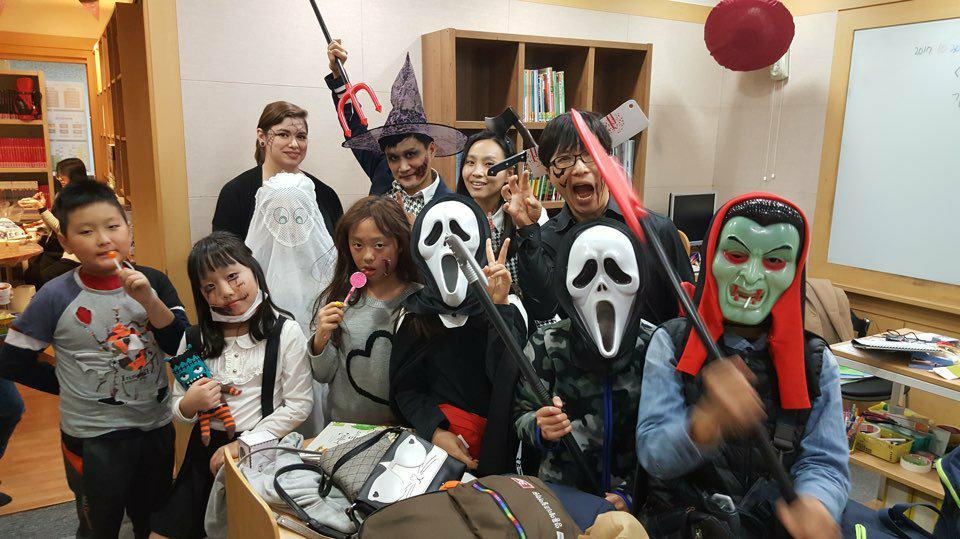
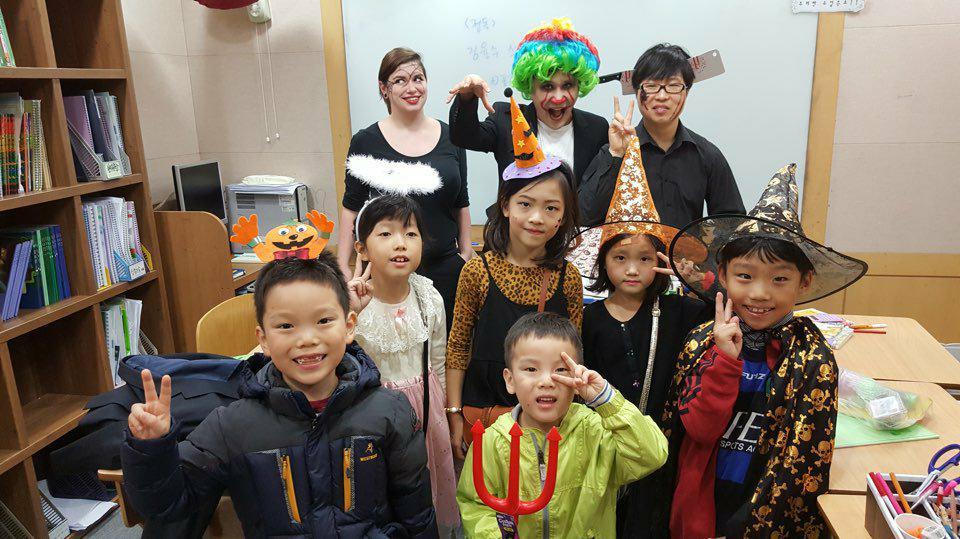
 James is from the UK and has been teaching in China since 2016
James is from the UK and has been teaching in China since 2016
What was it like when you first arrived in China?
For me, arriving in China was a daunting and exciting experience. Many aspects of China are different and you need some time to get used to it.
Why do you like living in China?
I like living in China as I feel the whole experience is an adventure. The standard of living is must cheaper and people are very friendly.
How is life in China different from back home?
There are many unusual aspects to life in China. The food is drastically different. In addition, some toilets are different, where squatting is needed.
Will I learn Chinese?
1-on-1 lessons can be arranged we a Chinese teacher. As many Chinese people cannot speak much English, there will be constant opportunities to practice Chinese. Worst-case scenario one can use Baidu translator (an alternative to Google translator.)
What do you do in your spare time?
In my spare time I enjoy exploring Hangzhou, trying new foods and meeting new people. I also often spend my 2 days off going to other cities to explore.
What is public transport like?
Transport in China is not only cheap but also easily accessible. There are buses, E-bikes, shared bikes, taxis, subways and walking is just as convenient. All mode of transport is extremely cheap. If you wanted to go to another city for holiday, there are also speed trains from city to city. My recommendation is not to take the cheap, slower trains, as you will be cramped up with others for a long period.
What is the food like?
There are many types of dishes in China. There are soups, noodles, rice, meat and vegetables that can come in many different variations. Chinese cuisine in China is a lot different to food from your local Chinese takeaway. Beware of the spiciness of some dishes!
Are there opportunity to travel?
There are opportunities to go travelling during your holidays. On your days off there is time to go to nearby cities by train; Shanghai, Ningbo, just to name a few. Chinese New Year is the longest holiday in China, which lasts around 2 weeks. During this time one can go travelling. However, beware, at this time the majority of people will be making use of public transport to go home.
Do you enjoy teaching?
Yes, the kids are a lot of fun and I enjoy teaching them.
Will I be able to save money?
Yes. The standard of living in China overall is very cheap. However, if you like going to bars and clubs or will constantly eat western food then the cost of living can add up very quickly. Clubbing and western food in China is very expensive.
Robert is from the UK and has been teaching in China for 7 years.
Why do you like living in China?
I would say life in China is very easy. China is safe and quite clean. People here are very friendly and there is lots to do.
Can I teach without knowing any Chinese?
95% of our classes are English only. We have a Chinese teaching assistant who will help communicate instructions to the children. Often all you need is a good demonstration of what you want the students to do. You will get to see this before you teach. You will observe other teachers. You do not need to know any Chinese to teach here.
Are there any opportunities to study Chinese?
There are many ways to learn Chinese. There are many teachers who charge little to teach you.
How will I get around?
The metro system in Hangzhou is fantastic. I have a car but never use it because the metro is just so easy.
What is Hangzhou like?
Hangzhou is very big; there are quite a few foreigners here. Marco Polo described it as heaven on earth. I have been in Hangzhou for over a year now and I still have much to explore.
Are there many other foreign (English speaking) teachers around?
There are many foreigners here in Hangzhou and many of the Chinese locals speak English.
What will I eat in China?
You can find Western food, especially if you can cook it yourself. I have a large English Sunday dinner every 2 or 3 days. You will eat Chinese food, Noodles, Hot pot, BBQ, Rice, Dumplings. The food in Hangzhou is very diverse.
Do you enjoy teaching?
This is my second school and I have been in China for 7 years now. I love to teach the students it is so rewarding. The first year was a little tough then you start to become better. I am still learning how to teach better now. It really is a fantastic way to spend your days. Once you have learnt the course and understand exactly where you want the students to be at the end of the unit/course, it is a great job.
Is there anything difficult about living in China?
The language barrier can be a pain. Even if you can speak a little Chinese, sometimes you cannot understand them or vice versa.
Is there an opportunity to save money?
YES! This depends on how you want to live your life in China. For the first four years, I lived like I was on vacation I spent all my money quickly, but had a great time. Over the last 2 years, I have stopped doing so much. I have bought a brand new car and saved over 100,000 YUAN. I think that is over 10,000 pounds. (The car cost 90,000 yuan, 9000 pounds.)
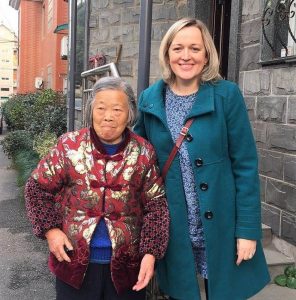 Mandy the founder of Flying Cows taught English in South Korea for 4 years (many moons ago!) and loved it from the moment she arrived. She has been on a mission to get good people into great jobs overseas ever since…
Mandy the founder of Flying Cows taught English in South Korea for 4 years (many moons ago!) and loved it from the moment she arrived. She has been on a mission to get good people into great jobs overseas ever since…
Why do people go to Korea to Teach?
People come to Korea “Land of the Morning Calm” for many different reasons. Some are looking for teaching experience. Others are recent graduates looking for an adventure before they become part of the rat race. Others come primarily for financial reasons – to help pay off loans or debts or to set themselves up for some other venture. Other, more seasoned travellers use teaching in Korea as a base to finance future adventures. Most people though are just looking for a change from everyday life i.e. something different. South Korea is different, very different. From the food to the language to the Confucian mindset, it’s an entirely different culture.
What is Korea like?
South Korea is a country of relatively small size yet it has a population of almost 50 million. The cities are big and bustling but somehow the countryside remains picturesque and unspoilt. The rapid growth of the South Korean economy in recent years means that Korea’s ancient culture has become intrinsically entwined with hi-tech modern living. It is not uncommon to see a bent over old woman pulling a rickety cart full of eggs down the street, stop in the middle of traffic, pull a cell phone from her pocket then proceed to have a conversation on the phone apparently oblivious to the impatient drivers blasting their horns all around her. More common still are the market women sitting on the pavement in all weathers cleaning bean sprouts or gutting fish all the while munching on a deep fried corn dog slathered in tomato ketchup. Such everyday encounters make living in Korea a fascinating experience. If you choose to come to Korea to live and work it is essential to keep an open mind and to respect Korean culture.
Settling In
Life in Korea is different. From the food to the language and the culture, it can all seem pretty strange to those new to the country. Moving to a foreign country invites a certain amount of trepidation however, for me at least, excitement far outweighed any negative feelings. Being suddenly immersed in a foreign culture is a truly fascinating experience. Some people experience a period of culture shock on arrival in South Korea. Thankfully, that didn’t happen to me. In fact, the only culture shock I experienced was on returning to my own country. I found myself taking my shoes off at the door, bowing my head, speaking Korean, and giving and receiving things with two hands (a polite custom in Korea) – much to the amusement of my friends and family. It is likely that you will be living or at least working with other foreigners (NB: you are a ‘foreigner’). The more experienced teachers usually take pride in looking after ‘newbies’ – showing them where to have lunch and how to order a beer. A new teacher brings a hive of excitement to a school and you can expect to be asked a plethora of questions by the Korean teachers who will want to know everything about you. As in any other society, some people will be nicer than others but in general Korean people are very friendly and helpful. When going to Korea for the first time try to relax and take it all in. You will discover something new everyday. After six months of being in Korea I was still waking up in the morning thinking ‘Wow! I am in Korea! ’.
Adapting to Life in Korea
Not understanding the language is a little unnerving at first. It sounds odd and a little harsh. Everyday conversations can, to the untrained ear sound like blazing arguments – especially among the market women! You will be surprised at how quickly you adapt to life in Korea and pick up the language. After the initial excitement of being in Korea wears off and teaching is as easy as tying your shoelaces, you will find that life is pretty sweet. If you work at a private school alarm clocks will become a thing of the past as it is unlikely that you will have to work mornings. You will be paid way over the Korean average income and because you don’t have to pay for your accommodation or travel costs to school, you will be pretty well off. Vacation days in Korea can seem quite few and far between but these are supplemented by many Korean national holidays and you’ll learn to make good use of them. Travelling in this part of the world is very cheap and easy. In time you will think nothing of taking off to Thailand or Vietnam at the drop of a hat.
Meeting People and Making Friends
The best source of advice and information on what life is really like in your town or city is other native English speaking teachers. You will discover early on that teachers tend to gather at the weekends to socialise. You will meet people from every corner of the English speaking world and although you may initially think that you don’t have much in common with them you will quickly find that you have. The mere fact that you all made a decision to take off and live and work on the other side of the world means that you already have a common bond. Please be prepared to learn to understand how Koreans think and work. Things will not necessarily run as they would in a western culture. You will without a doubt have to make compromises and adjustments but it is well worth it in the end. Teaching English in South Korea is an unforgettable experience that will change your life forever.

